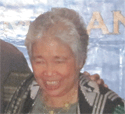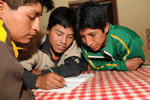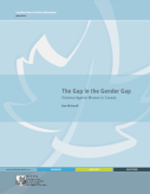Social Watch news
Published on Wed, 2013-07-24 22:00
A study released and authored by CCPA research associate and member of the Coordinating Committee of Social Watch Kate McInturff, says that progress on ending violence against women in Canada is stalled by the absence of a coherent national policy and consistent information about the levels of that violence.
“The difficulty of collecting data about violence against women has been a barrier to progress in ending that violence,” says the study’s author Kate McInturff. “However, the data that does exist tells us three things very clearly: this problem is big, it comes at a high cost, and we are making little or no progress in putting a stop to it.”
|
Published on Sun, 2013-07-21 00:00

Photo: Iraqi Al-Amal
Association
|
The "Arab NGO Network for Development (ANND)", in partnership with the "CSOs Partnership for Development Effectiveness” and ”Iraqi Al-Amal Association”, and in collaboration with the Parliament of Iraqi Kurdistan Region and the ICNL, organised the Regional Conference for the Arab Region on the Effectiveness of Development, in Erbil on 22 and 23 June, 2013.
This Conference comes in the context of the “development effectiveness”, which was launched in 2003 at the first meeting organised by the Organisation for Economic Cooperation for Development in Rome, to discuss how to make the development aid more effective. The conference was followed by a meeting in France in 2005 which resulted in the Paris Declaration on Aid Effectiveness. In this meeting, and for the first time, a set of principles were discussed, including the principle of partnership between donors and beneficiaries, the principle of consistency between the policies and directions of the donors to avoid duplication and the discrepancies in standards, the principle of compatibility with public policies and national needs in the beneficiary country, as well as the principle of democratic ownership, including the ownership of decision, and avoid linking development aid with conditions on the policies.
|
Published on Fri, 2013-07-19 00:00

Demonstration in Cairo. (Photo:
EACPE)
|
The dramatic developments in the region carry positive indicators of a better future. Recent developments in Egypt reshuffled cards and underscored the fact that citizens are capable of getting hold of initiative and change once they feel their rights and their revolution’s achievement are in danger. The fact that more than 22 million people gathered in squares in all Egyptian cities after 22 million signatures were collected by the “Tamarod” movement, reiterates that peoples’ will is unbeatable and that people are capable of regaining their rights with their hands even after a while.
|
Published on Thu, 2013-07-18 11:38

Prof. Leonor Briones.
(Photo: SW)
|
After President Noynoy Aquino’s State of the Nation Address (SONA) on Monday, July 22, PNoy’s proposed budget for 2014 will be under scrutiny in a forum to be held at the University of the Philippines National College of Public Administration and Governance Assembly Hall. SW Coordinating Committee Co-chair, Former National Treasurer and budget expert Professor Emeritus Leonor Magtolis Briones will be the guest speaker in the forum.
Entitled “#Kabataan Roadtrip: Sa’n na Tayo Nakarating, Sa’n na Tayo Papunta?”, the public forum will focus on the government’s allocations and priorities for the youth. It is primarily organized by UP Samahan Tungo sa Progresibong Administrasyon (UP STPA), a socio-academic organization of public administration students of UP NCPAG. They are partnered with Social Watch Philippines, the People’s Public Finance Institute, the Alternative Budget Initiative, PALS NCPAG and the University Student Council.
|
Published on Sat, 2013-07-13 11:36

High unemployment rate among
youth. (Photo: ILO)
|
Slovenia has had the sharpest decline in GDP since 2008 of any euro-zone member apart from Greece, although it has so far avoided having to ask for external aid owing to having entered the crisis with a far lower sovereign debt burden. The new Government has indicated that it will continue to avoid a bailout by driving through changes including bank restructuring, privatizations, and pension and labour reforms. However, poverty has increased and many people are no longer able to meet basic needs; without state assistance, the poverty rate is estimated to rise to 24%. Those who can’t find work have dropped out of the labour force. As a result, Slovenia has joined countries where people have taken to the streets to call for a more just and balanced economy, more participatory democracy and the rule of law.
|
Published on Thu, 2013-07-11 17:18
At a time when the United Nations Secretary General Ban Ki-moon is very close to finalizing and publishing its report "Accelerating progress towards the Millennium Development Goals and advancing the United Nations development agenda beyond 2015" to the United Nations General Assembly (NY, September 24, 2013), it is necessary for all organizations working for the right to education to mobilize NOW!
It is URGENT that we submit our proposals. The report will be ready next week.
|
Published on Thu, 2013-07-11 09:05
On June 25 and 26 June 2013, the Vienna+20 CSO Conference of more than 140 persons from various CSOs around the world gathered at Vienna on the occasion of the 20th anniversary of the 1993 World Conference on Human Rights and its Vienna Declaration and Programme of Action issued on June 25, 1993. Social Watch was represented by Kinda Mohamadieh.
|
Published on Wed, 2013-07-10 17:56

Grassroots activists in Peru
discussing proposals for a new
Post-2015 Sustainable
Development Agenda. (Photo:
ATD)
|
Emerging from a sustainable development discourse saturated by “experts”, “eminent persons”, and professionals, the knowledge of people living in extreme poverty, based on lived reality, is crucial to the debate. The International Movement ATD Fourth World organized a two-day seminar, with participants who experience daily hardship, to demonstrate that those who have lived extreme poverty are best equipped to end it.
Present at the seminar were also Amina Mohammed, Special Advisor of the Secretary-General on Post-2015 Development Planning; Olav Kjorven, Assistant Secretary-General at the United Nations Development Programme; as well as academics from Oxford University, UK, and practitioners in the field.
|
Published on Tue, 2013-07-02 00:00
In July 2012 after the Rio+20 Conference was held, the UN Secretary General with the support of the UN agencies launched a process to discuss the Post-2015 development agenda. He commissioned to very specific stakeholders four reports that have just been delivered and will serve as an input to his report to the September 2013 General Assembly Special Event on the Millennium Development Goals (MDGs) and the Post-2015 Development Agenda. The four stakeholders that prepared and submitted reports to the UN Secretary-General are the High Level Panel of Eminent Persons on the Post-2015 Development Agenda (Post-2015 HLP), the UN Sustainable Development Solutions Network (SDSN), the UN Global Compact (UNGC), and the UN Development Group (UNDG).
|
Published on Thu, 2013-06-27 11:48
“The worst thing about living in extreme poverty is the contempt - that they treat you like you are worthless, that they look at you with disgust and fear and that they even treat you like an enemy.”
“We experience the violence of being discriminated against, of not existing, not being part of the same world, not being treated like other human beings.”
Time and again, poverty is associated with violence against the people that suffer it. Poverty is frequently a consequence of human rights violations and also a symptom of them. The first quote is from a person living in poverty in Peru. The second from a person in France. The feelings expressed are essentially the same, even when the countries in which they live may be officially classified under very different economic standards.
|
SUSCRIBE TO OUR NEWSLETTER
Submit

|












